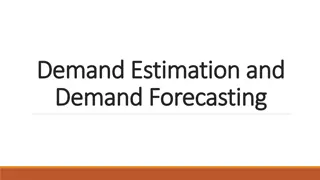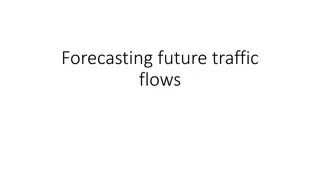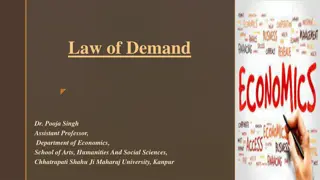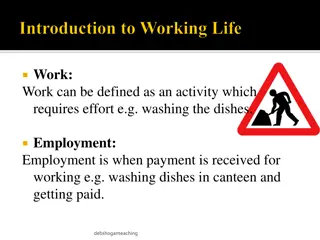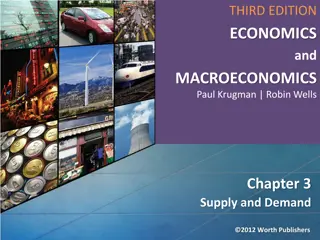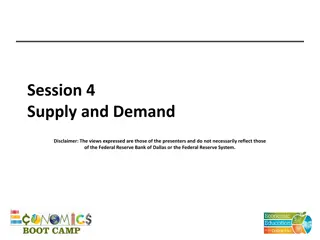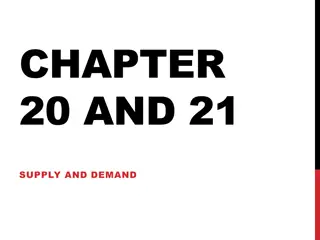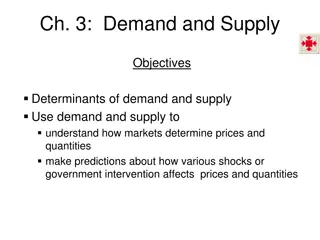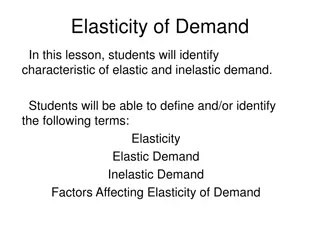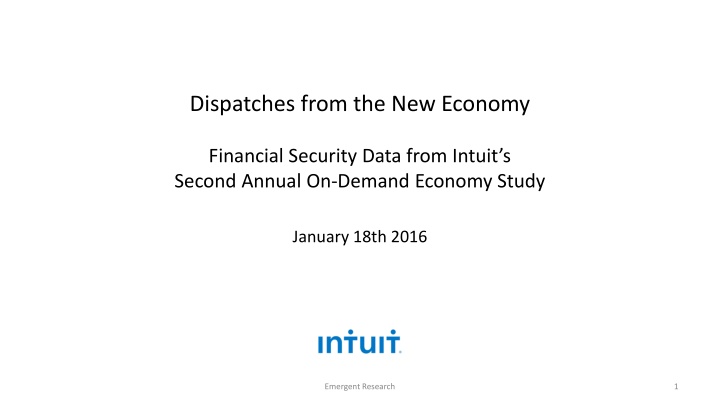
Insights from Intuit's On-Demand Economy Study
Discover key findings from Intuit's Second Annual On-Demand Economy Study, including the profile of online workers, reasons for participation, financial situation, income variability, and challenges faced. Learn about the satisfaction levels, financial reserves, and more in this insightful report.
Download Presentation

Please find below an Image/Link to download the presentation.
The content on the website is provided AS IS for your information and personal use only. It may not be sold, licensed, or shared on other websites without obtaining consent from the author. If you encounter any issues during the download, it is possible that the publisher has removed the file from their server.
You are allowed to download the files provided on this website for personal or commercial use, subject to the condition that they are used lawfully. All files are the property of their respective owners.
The content on the website is provided AS IS for your information and personal use only. It may not be sold, licensed, or shared on other websites without obtaining consent from the author.
E N D
Presentation Transcript
Dispatches from the New Economy Financial Security Data from Intuit s Second Annual On-Demand Economy Study January 18th 2016 Emergent Research 1
Methodology - 2016 A total of 6,247 on-demand economy independent workers completed an online survey between September 20th and November 18st, 2016. The survey respondents came from partner company lists of their providers. Participating Platforms Upwork Wonolo MBO Partners OnForce Work Market Catalant Field Nation Amazon Mechanical Turk Kelly Services Lyft Uber Avvo Task Rabbit Emergent Research 2
Online On-Demand Work is Mostly Part-Time and a flexible way to earn more income The average online on-demand worker works 11 hours per week generating 22% of their household s income 41% have either a traditional full-time or part-time job 37% own their own business in addition to doing online gig work Fewer than 10% work more than 30 hours per week in the online gig economy Reasons for Working in the Online Gig Economy Earn more income/supplement income 58% Control my schedule 51% Flexibility 45% Like being my own boss 35% Wanted to try something new 32% Do what I love 30% In Response to a Financial Hardship 21% Emergent Ressearch 3
Most Online On-Demand Workers Feel Their Financial Situation is Average or Better And most are satisfied with their work Current Financial Situation Satisfaction With On-Demand Work Poor, 11% Satisfied Excellent, 6% % rating 6 10% % rating 7 17% Good, 24% Dissatisfied % rating 1-5 23% Below Average, 21% % rating 8-10 50% Highly Satisfied Average, 38% Emergent Research 4
Online On-Demand Workers Report High Levels of Income Variability Only One Out of Three Report Stable Monthly Income 40 35 30 25 20 15 10 5 0 varies quite a bit month to month but is predictable varies quite a bit month to month and is unpredictable roughly the same but some months unusually high or low more or less stable Emergent Research 5
Like Most Americans, Many Have Limited Financial Reserves 44% could not pay for an emergency expense greater than $400 using money in their checking or savings account. The Federal Reserve found that 46% of all Americans could not pay more than $400 Largest Emergency Expense Tolerable (Using cash or money in checking/savings account) Under $100, 18% $100-$199, 10% $400 or more, 56% $200-$299, 8% $300-$399, 8% Emergent Research 6
41% of On-Demand Workers Reported Facing a Financial Hardship During the Prior Year Only 18% of Americans reported a financial hardship in prior year Of those who experienced a hardship, the top hardships are: Unexpected major expense: 36% Job loss: 31% Health emergency: 29% Work hours cut: 26% Of those reporting a hardship, half (51%) listed it as a reason they re working in the online on-demand economy This equals 1 in 5 (21%) of all on-demand workers Emergent Research 7
39% of Online On-Demand Workers Consider Themselves Better Off Financially Due to Online Gig Work; Few Worse Off Financial Situation Since Starting Work in the Online On-Demand Economy Much worse off, 4% Much better off, 9% Somewhat worse off, 10% Somewhat better off, 30% About the same, 46% Emergent Research 8




